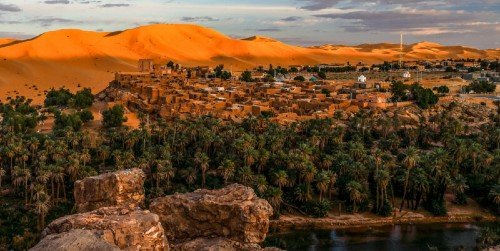LONDON, 29 June, 2021 − Prepare for a hotter, drier world, even in monsoon country. As global temperatures rise, in response to greenhouse gas emissions, the northern hemisphere rainy seasons are likely to arrive ever later as Earth’s water cycle reacts.
And even though more carbon dioxide in the atmosphere means more fertility and more moisture in the atmosphere, in the last 30 years the world’s green canopy has become more and more water-stressed, according to an entirely separate study.
US scientists report in Nature Climate Change that humankind has, in effect, begun to alter the planetary hydrological cycle. Increasing levels of greenhouse gases in the atmosphere and falling emissions of aerosols from car exhausts and factory chimneys have together combined to affect the tropical rainy season.
The Asian monsoons are arriving four days later, along with the rains over the Sahel in sub-Saharan Africa. By the century’s end the monsoons could sweep over India five days, and over the Sahel eight days, later.
A warmer world should be a wetter one: standing water evaporates more swiftly, and with every degree Celsius temperatures rise, the capacity of the air to hold moisture also rises significantly. But, paradoxically, this extra atmospheric moisture is also the problem: ever more energy is needed to warm up the atmosphere as spring becomes summer.
The problem is compounded by cleaner air; industrial pollution had the effect of reflecting sunlight and damping down the global warming trend. As nations enforce clean air legislation − and create conditions for healthier lives − more sunlight gets through, to escalate both warming and rainfall delays. Later rains will mean later crop harvests, more extreme heat waves, and more intense wildfires.
“For monsoon regions, like India, with an agrarian economy, a delayed onset of summer rainfall could devastate crop production and jeopardise the livelihoods of large populations, unless farmers recognise and adapt to the long-term changes amidst highly variable monsoon onset dates,” said Ruby Leung, of Pacific Northwest National Laboratory, one of the authors.
And in a second study, in the journal Nature Communications, another US research team warns that vegetation in the northern hemisphere has been becoming increasingly (as they put it) “water-limited” over the last 30 years.
Inflexible limits
In what they say is a first-of-its-kind large-scale study, scientists analysed satellite and weather data from 604,800 locations each year over the three decades from 1982 to 2015. They identified a kind of vegetable go-slow overall: those areas where water supplies for plant growth were constrained had expanded, while those places where there was plenty of water tended to shrink.
In recent decades, plants have responded to extra atmospheric carbon dioxide by growing more vigorously to “green” the planet a little more measurably and slow the rate of climate change. This, however, looks as though it cannot last, because ultimately growth is limited by water availability.
“Without water, living things struggle to survive. Changes in vegetation response to water availability can result in significant shifts of climate-carbon interaction,” said Lixin Wang, of the University of Indiana, one of the authors.
“The results emphasise the need for actions that could slow down CO2 emissions. Without that, water constraints impacting plant growth − and the weakening of vegetation’s ability to remove CO2 from the atmosphere − are unlikely to slow.” − Climate News Network
Author
Tim Radford, a founding editor of Climate News Network, worked for The Guardian for 32 years, for most of that time as science editor. He has been covering climate change since 1988.
![]() Don't forget to feed the birds. Donate here
Don't forget to feed the birds. Donate here





